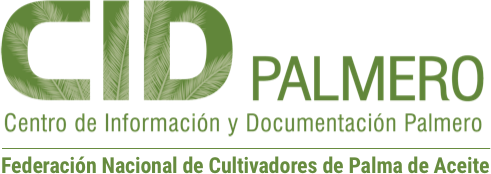| dc.creator | PIPOC 2007 International Palm Oil Congress Palm oil: Empowering change
August 26-30, 2007 :
Kuala Lumpur :
52116. | |
| dc.creator | Beulé, Thierry
46251. | |
| dc.creator | Finnegan, E. Jean
47263. | |
| dc.creator | Jaligot, Estelle
46254. | |
| dc.creator | Rival, Alain
46257. | |
| dc.creator | Tregear, James
46258. | |
| dc.creator | Malaysian Palm Oil Board, MPOB
50178. | |
| dc.date | 2007. | |
| dc.description | Plant tissues from the mantled somaclonal variant of oil palm have been found to display both large-scale perturbations of genomic methylation levels and sequence-specific DNA methylation pattern changes when compared to their true-to-type counterparts. Concomitantly, several markers showing phenotype-specific transcription patterns have been identified in our group. Some of them are likely to be indicators of the altered physiological state of abnormal cultures, others are possible targets of epigenetic misregulations of flower development. We now aim to establish the exact link between the expression of these candidate marker genes and the mantled somaclonal variation state, through the exploration of their global epigenetic behaviour. This will be achieved using three complementary approaches applied to normal and abnormal tissues: i) the evaluation of transcription levels through quantitative or semi-quantitative techniques (semi-quantitative RT-PCR, real-time PCR); ii) the determination of sequence-wide DNA methylation patterns (bisulfite sequencing) and iii) the identification of the chromatin regulatory environment of these genes (Chromatin Immuno-Precipitation: ChIP). These combined strategies will ultimately help to elucidate the epigenetic mechanisms which give rise to the mantled somaclonal variant. Also, we will be able to identify which of the candidate markers which are indeed consistently linked with the abnormal state. This work will provide the basis for a molecular detection test of the variant phenotype. | |
| dc.description | Incluye referencias bibliográficas. | |
| dc.description | Plant tissues from the mantled somaclonal variant of oil palm have been found to display both large-scale perturbations of genomic methylation levels and sequence-specific DNA methylation pattern changes when compared to their true-to-type counterparts. Concomitantly, several markers showing phenotype-specific transcription patterns have been identified in our group. Some of them are likely to be indicators of the altered physiological state of abnormal cultures, others are possible targets of epigenetic misregulations of flower development. We now aim to establish the exact link between the expression of these candidate marker genes and the mantled somaclonal variation state, through the exploration of their global epigenetic behaviour. This will be achieved using three complementary approaches applied to normal and abnormal tissues: i) the evaluation of transcription levels through quantitative or semi-quantitative techniques (semi-quantitative RT-PCR, real-time PCR); ii) the determination of sequence-wide DNA methylation patterns (bisulfite sequencing) and iii) the identification of the chromatin regulatory environment of these genes (Chromatin Immuno-Precipitation: ChIP). These combined strategies will ultimately help to elucidate the epigenetic mechanisms which give rise to the mantled somaclonal variant. Also, we will be able to identify which of the candidate markers which are indeed consistently linked with the abnormal state. This work will provide the basis for a molecular detection test of the variant phenotype. | |
| dc.language | ng | |
| dc.publisher | Kuala Lumpur : MPOB, | |
| dc.subject | Palma de aceite | |
| dc.title | A marker-based strategy for the assessment of epigenetic instability in oil palm. | |
| dc.type | text | |


